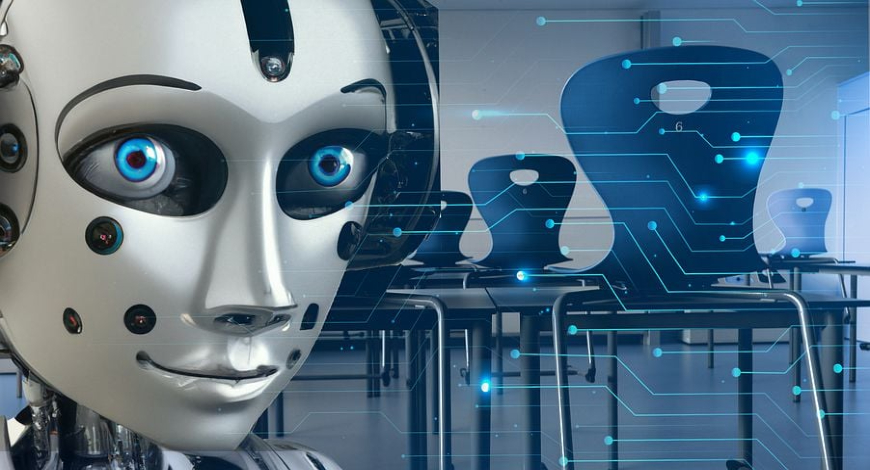Generative AI tools such as ChatGPT have the potential to transform the way students learn and teachers teach, providing quick and accurate access to information and personalised support to help students succeed; however, using these tools as a supplement to human teachers rather than a replacement is crucial
In 2022, we all witnessed Artificial Intelligence (AI) evolve and become one of the most transformative technologies humanity has ever seen. Now as the technology continues to advance further, AI-powered platforms also continue to grow popular. One such innovation is the emergence of chatbots like ChatGPT. Just two months after its launch, the OpenAI chatbot had around 100 million users worldwide, making it the fastest-growing consumer app.
It might be too soon to judge, but ChatGPT has certainly shown promise as a powerful tool. However, it has also raised concerns among experts, including educators in India, as the tool could also be used to facilitate cheating. Let’s explore the potential of ChatGPT as both a tool for learning and a vehicle for cheating.
ChatGPT, a boon or bane?
The ability of ChatGPT to provide quick and accurate responses to questions has the potential to transform education and learning. With ChatGPT, students can access information on various topics without having to sift through large amounts of text or spend hours researching. This can help students learn more efficiently and effectively and free up time for teachers to focus on other aspects of teaching.
Moreover, it can also be used as a tool for personalised learning. By analysing a student’s responses and interactions, ChatGPT can provide tailored feedback and support to help them learn and grow. This can be particularly beneficial for students who struggle with traditional teaching methods or who have learning disabilities.
There are also concerns that ChatGPT could be used as a tool for cheating. For example, students could use ChatGPT to generate responses to homework questions or to take tests. This could undermine the integrity of the education system and devalue the achievements of students who have worked hard to learn and master the material. The latest US-based survey by Study.com showed that teachers caught one in four students cheating using the ChatGPT.
Having said that, ChatGPT cannot give the human touch. For instance, the students might use the chatbot to write a short story. However, only they can add an emotional connection and build the narrative accordingly. Yes, it might soon be able to do more, but it seems there will always be a fine line where only a human would know how to improve it.
As mentioned above, ChatGPT is undoubtedly powerful, but it is not infallible. Therefore, it is essential to consider the limitations of ChatGPT as a cheating tool. It may be unable to answer complex questions or respond to more nuanced prompts. Moreover, teachers will likely detect when a student is using ChatGPT to cheat, either by recognising the responses as being generated by a machine or by noticing inconsistencies in the student’s work. Tools like DetectGPT will also assist them with the same.
Furthermore, it is vital to consider the potential benefits of using ChatGPT as a teaching tool. By incorporating ChatGPT into the classroom, teachers can provide more individualised support to students and help them learn more efficiently and effectively. This can ultimately lead to better outcomes for students and a more successful education system overall.
Generative AI tools such as ChatGPT have the potential to transform the way students learn and teachers teach, providing quick and accurate access to information and personalised support to help students succeed. However, using these tools as a supplement to human teachers rather than a replacement is crucial. There must be a shift in the roles of teachers and students in learning, as well as changes in learning outcomes, pedagogy and assessment methods, to capitalise on these tools. We can harness the power of this technology to transform education and improve outcomes for all students. If 2022 was the era of the metaverse, 2023 definitely belongs to ChatGPT.

